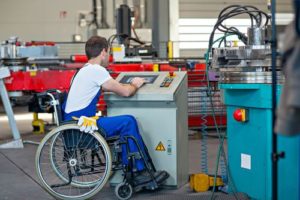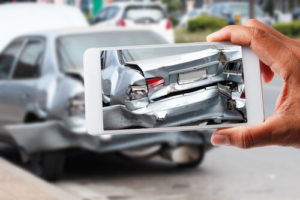As more employees work from home in response to the COVID-19 pandemic, employers and workers are considering the implications for workers’ compensation claims, because accidents can happen at home as easily as in the traditional workplace.
As stated by Insurance Business America, home-based employees have the same workers’ compensation benefits as office employees do.
Little should change in terms of workers’ compensation coverage if employees begin working from home, or “telecommuting.” If you have been working from home and have been injured in an accident while performing work duties and cannot work, you may be entitled to workers’ compensation just as if you had been injured in an office or on the job at a construction site.
In the Raleigh, N.C., area, the workers’ compensation attorneys at Younce, Vtipil, Baznik & Banks, P.A., can help you seek the full benefits available by law after a serious on-the-job injury. At the first sign that your employer or their workers’ compensation insurer is disputing your claim for benefits, contact a Raleigh workers’ comp lawyer at Younce, Vtipil, Baznik & Banks at 919-661-9000 or online for a free, no-obligation case review.
More Employees Have Been Working from Home
While coronavirus concerns have increased the number of people working from home, telecommuting is not a sudden 2020 trend. Before we were forced to work remotely, many industries were offering “work from home” days to help their employees achieve a better work-life balance, says Employment Hero, a human resources management services provider. At the same time, the rise of the gig economy has necessitated home offices for many workers.
In 2017, 3.9 million U.S. employees, or 2.9 percent of the total U.S. workforce, worked from home at least half of the time, up from 1.8 million in 2005, according to the U.S. Bureau of Labor Statistics (BLS).
But, in August 2020, 24 percent of people who were employed worked from home because of the COVID-19 pandemic, the BLS says. That was down from 35 percent in May, the first month that data specific to the pandemic was collected.
Not All Jobs Suitable for Work-from-Home Arrangements
Another BLS study found that 63 percent of U.S. jobs require significant onsite presence, and the remaining 37 percent can be performed entirely at home. Examples of jobs likely to be unsuitable for telework are jobs that involve operating specific equipment or interacting face-to-face with the public.
During the pandemic, more jobs were lost among those that do not translate to telecommuting arrangements than among those that could shift to home work.
Workers with less education tend to be in jobs in which working at home is less feasible. Teleworking is also less feasible in part-time jobs and in jobs found in nonmetropolitan areas.
The BLS says working at home is generally more feasible in management, professional and administrative support jobs and in the information, financial activities, professional and business services and public administration sectors.
Working from home is less feasible in most transportation and production jobs and in the leisure and hospitality, agriculture, and construction industries, the BLS says.
The BLS predicts that telecommuting will increase as workers and employers become more comfortable with telework arrangements. Some of the world’s largest tech companies have already said they are in no hurry to repopulate offices and that working from home will be a permanent option.
Employers’ Responsibilities for Employees Working from Home
The increase in work from home during the 2020 pandemic prompted the U.S. Department of Labor (DOL) to issue a bulletin reaffirming that an employer is obligated to pay for all of the time that an employee works, including telework and remote work.
“An employer is required to pay its employees for all hours worked, including work not requested but suffered or permitted, including work performed at home,” the bulletin says. “If the employer knows or has reason to believe that work is being performed, the time must be counted as hours worked.”
Just as remote work does not alter salary and wage obligations, work based at home does not change North Carolina employers’ duty to provide workers’ compensation insurance to employees and to pay benefits to injured employees. Most North Carolina businesses that employ at least three workers must carry workers’ compensation insurance to protect all full-time and part-time employees in the event of an work-related injury or illness. Employment status is the deciding factor, not location.
Independent contractors are not employees, so they are not covered by workers’ compensation benefits. But some companies will try to classify employees as contactors to avoid obligations to them, such as providing workers’ comp.
There are specific tests to apply to properly classify a work-for-pay arrangement but, in general, independent contractors set their own hours, provide their own tools, equipment and workspace, and determine whether to accept assigned tasks and how they will be handled and finished.
If you are receiving close supervision or direction, it may be that you should be classified as an employee, regardless of where you work.
Were You Injured While Working?
The main question for an employee seeking workers’ compensation benefits is, were you on the job when you were hurt? If your workers’ comp claim is challenged, a court would want to see evidence that your injury did in fact “arise out of” your job duties.
For a telecommuter, the distinction between work life and personal life can blur. This might allow an employer to challenge a work-at-home injury, such as, for example, if you fell out of your office chair as you turned to speak to your child. Further, there is no co-worker or security camera to confirm you were working at the time of the accident.
However, courts are increasingly deciding that an injury should be considered to arise out of employment if general conditions of the job put the individual in a position that he or she could be injured by a neutral risk, such as the risk of falling. In other cases, courts have found that being injured in activities incidental to work duties, such as slipping and falling while going to get a cup or coffee, qualify for workers’ comp, as well.
Contact a Raleigh Attorney About A Challenged Workers’ Comp Claim
As our work lives change, the technicalities of how the law applies to our lives is likely to change as well. But the letter and spirt of the law remain: if you are injured while on the job, then you may be entitled to claim workers’ compensation payments for your medical bills and to replace a portion of lost wages while you recover.
It will cost you nothing to discuss your legal options with an experienced North Carolina workers’ compensation attorney at Younce, Vtipil, Baznik & Banks, P.A., in Raleigh, N.C. Call us at 919-661-9000 now or contact us online for a free claim review and advice about your legal options.
The post Increased Remote Work Should Have Little Impact on Workers’ Compensation Coverage appeared first on .
from Younce, Vtipil & Baznik, P.A. https://www.attorneync.com/blog/increased-%e2%80%8cremote%e2%80%8c-%e2%80%8cwork%e2%80%8c-%e2%80%8c%e2%80%8c%e2%80%8cand%e2%80%8c-%e2%80%8cworkers-comp-coverage/
via https://www.attorneync.com
 Workers’ compensation covers injuries or illnesses that arise out of and in the course of the claimant’s employment. In short, you must have been hurt while on the job.
Workers’ compensation covers injuries or illnesses that arise out of and in the course of the claimant’s employment. In short, you must have been hurt while on the job. There are numerous rules that regulate a workers’ comp claim in North Carolina. For example, you must be treated by a doctor assigned to you by your employer, and failure to keep appointments and follow the doctor’s order for treatment can jeopardize your claim.
There are numerous rules that regulate a workers’ comp claim in North Carolina. For example, you must be treated by a doctor assigned to you by your employer, and failure to keep appointments and follow the doctor’s order for treatment can jeopardize your claim. The dissolution of your marriage could mean the end of your business if you do not take proper steps to protect it and your right to its assets. In some cases, the dissolution of business and equitable distribution of its assets is the proper outcome of a divorce. A divorce attorney for business owners from
The dissolution of your marriage could mean the end of your business if you do not take proper steps to protect it and your right to its assets. In some cases, the dissolution of business and equitable distribution of its assets is the proper outcome of a divorce. A divorce attorney for business owners from  Most car companies are betting that self-driving cars are inevitable and they’re all investing billions of dollars in self-driving vehicle initiatives, according to a
Most car companies are betting that self-driving cars are inevitable and they’re all investing billions of dollars in self-driving vehicle initiatives, according to a  The final clause of the statement above is meant to apply to common communicable diseases, like the flu or measles. Because COVID-19 is a pandemic, some are already arguing that any worker who contracts the coronavirus would have been equally exposed to the virus outside of the work environment. However, an employee in an essential job such as a health care worker might argue they are at greater risk of contracting the virus than the general public as a result of their job duties treating patients.
The final clause of the statement above is meant to apply to common communicable diseases, like the flu or measles. Because COVID-19 is a pandemic, some are already arguing that any worker who contracts the coronavirus would have been equally exposed to the virus outside of the work environment. However, an employee in an essential job such as a health care worker might argue they are at greater risk of contracting the virus than the general public as a result of their job duties treating patients. There are many open questions about what will happen when the COVID-19 pandemic subsides. Coronavirus workers’ compensation claims will likely be handled on a case-by-case basis with many employers and insurers disputing claims, which may amount to
There are many open questions about what will happen when the COVID-19 pandemic subsides. Coronavirus workers’ compensation claims will likely be handled on a case-by-case basis with many employers and insurers disputing claims, which may amount to 